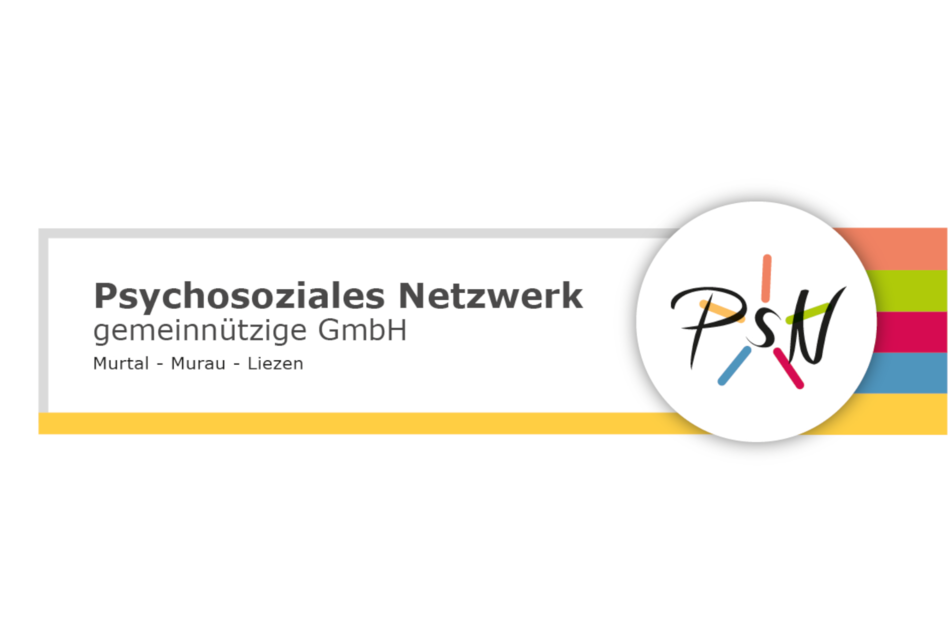PSN - Psycho-sozial network
Gröbming
self-image
The Psychosocial Network (PSN) is an independent, non-partisan, non-denominational and human rights-oriented non-profit organization in the psychosocial field whose diverse offerings extend to the districts of Murtal, Murau and Liezen.
target group
PSN offers are aimed at people of all ages, regardless of gender, culture, religion, sexual orientation and social class. These receive advice, support, treatment or care in conflict situations, in life crises or in complex life questions. Particular consideration is given to mentally, physically and / or socially disadvantaged or impaired people and their relatives. Prerequisite is the voluntary use of the offers.
objective
The organization has the mission and the concern to help shape a well networked psychosocial care of the population of the districts Murtal, Murau and Liezen. This is done through needs-based offers to stabilize, promote and maintain the psychosocial, mental and physical development of clients.
The PSN seeks to maintain existing support services, to address the lack of support services for the care and inclusion or inclusion of mentally, physically and socially disadvantaged people, to make them aware and, where possible, compensate for them through appropriate initiatives.
In addition, through preventive measures and public relations work, PSN sensitizes society and political decision makers through memberships in the relevant umbrella organizations for socially important, often tabooed, problem areas. In the course of the public relations the offers of the organization are made known.
ways of working
The focus is on people in their living environment with their right to individuality and self-determination.
The employees work holistically, independently and on their own responsibility within the framework of their assignment. Her work is part of a transformable process of social norms and values. They are bound to secrecy and, with the exception of a few areas, not bound to the authorities, largely unbureaucratic and flexible in their procedures. They empathically offer their clients a respectful, accepting attitude. They understand their offers as help for self-help. Depending on the problem, needs-based and needs-oriented work is being carried out with individuals, couples, families or in groups with different methods of improving quality of life. The client is actively involved in the treatment, counseling and care process.
Multiprofessionality enables interdisciplinary cooperation within the organization. If necessary, it cooperates with other institutions and social networks
organizational culture
The organization is educational, error-, dissens- and philanthropic.
A permanent works council is part of the organization.
The main resources of the organization are the employees with their different professions, personalities, experiences and commitment. Leaders, employees and colleagues cultivate an appreciative approach across all levels and generations, based on respect, honesty, acceptance and reliability. A careful handling of this resource should be ensured in everyday working life by maintaining the individual limits, a collegial cooperation and the targeted use of quality assurance measures.
In the organization, quality assurance takes place by guaranteeing time and financial resources for compulsory continuing education and training, supervision, intervision, team meetings and retreats. Further voluntary further education and further education is desirable and will be supported financially and by granting educational leave if possible. The organization endeavors to facilitate preventive measures such as sabbatical. The careful handling of personal resources is the goal in all areas of work.
Professional and linear internal communication ensures the necessary flow of information and transparency, so that work-relevant decisions can be traced. The constructive cooperation is supported by clear service orders and competence distributions. In addition to the exchange of technical information, there is also space for personal discussions between all levels.
Contradictory points of view and resulting conflicts are seen as an opportunity. The conflict guide contributes to an appropriate culture of conflict.
